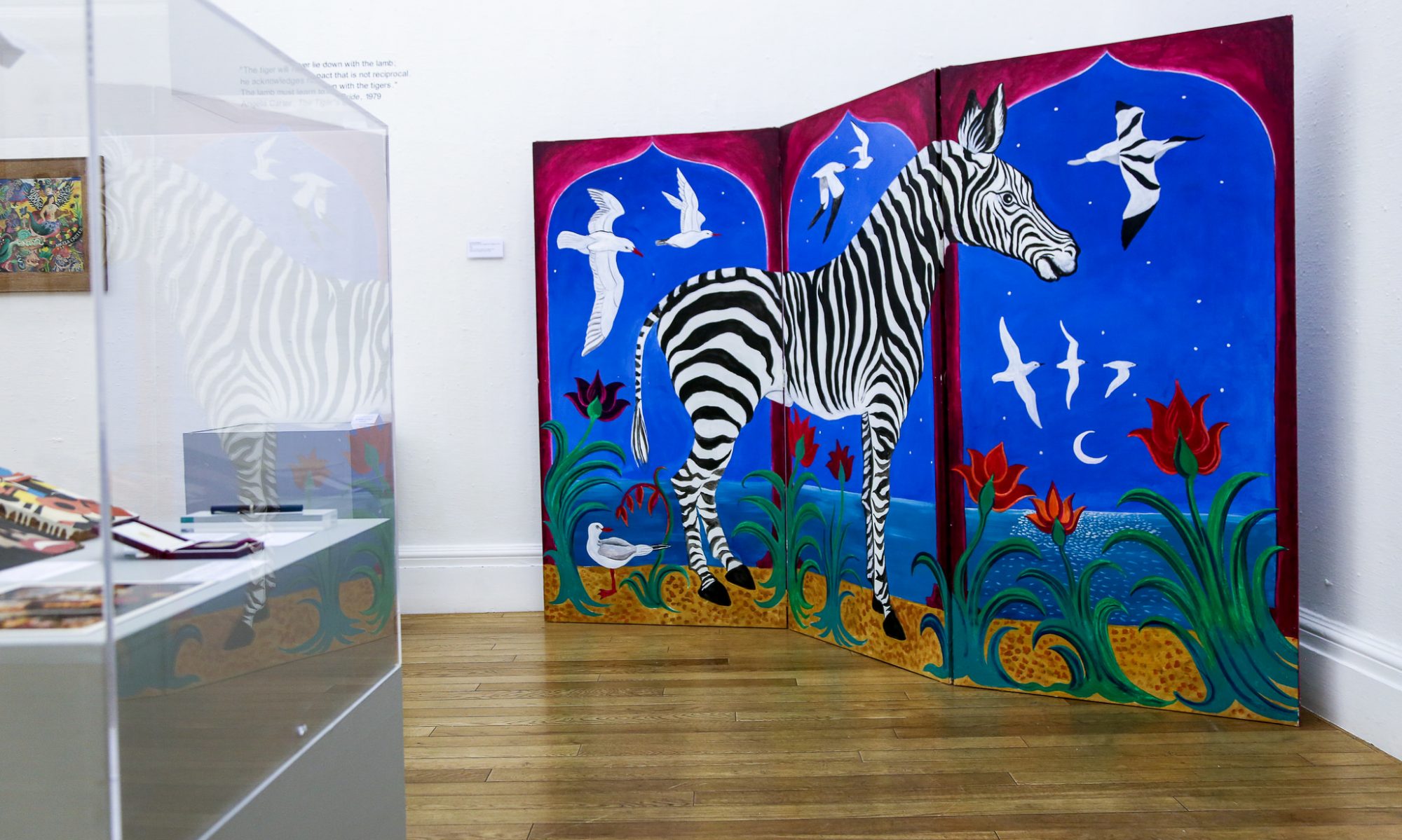The winners of the 2020 Angela Carter Society Awards were announced at the inaugural Angela Carter Society Conference in Lausanne (and on Zoom) on 8 Oct 2020.
Best Chapter/Journal Article – Winner
Gina Wisker (2019) ‘Desire, disgust and dead women: Angela Carter’s rewriting women’s fatal scripts from Poe and Lovecraft’, in Marie Mulvey-Roberts (ed), The Arts of Angela Carter: A Cabinet of Curiosities (MUP)
This book chapter explores how Angela Carter re-explores the narratives which have constricted women by revising and rewriting them. Professor Wisker focuses instead on intertextuality, specifically the work of Edgar Allen Poe and H.P. Lovecraft and makes the important claim that Carter’s work will have prompted some readers to return to these authors or even read them for the first time. She exposes how Poe and Lovecraft portray women as monstrous. Wisker explains how Carter’s narratives overlay these earlier ones by retelling and revising these representations in a way which shows how women can break out and free themselves from their constraining myths and – in the words of Helen Cixous – allow them to have the last laugh, which is all part of Carter’s demythologising agenda. This important book chapter celebrates Carter’s feminist approach and also illuminates our understanding of two of the most important writers of Gothic and Horror.
Best Chapter/Journal Article – Special Mention
Caleb Sivyer (2019) ‘“I resented it, it fascinated me”: Carer’s ambivalent cinematic fiction and the problem of proximity’, in Marie Mulvey-Roberts (ed), The Arts of Angela Carter: A Cabinet of Curiosities (MUP)
This is a brilliant exposition which takes a new line in regard to the relationship between Carter and cinema. Instead of focusing on how Carter’s interest in anti-illusionistic cinema informed her early fiction, which has tended to mar the importance of illusionist cinema for her work, Dr Sivyer investigates Carter’s very fascination with the illusion of the moving picture in relation to her later works and underlines the fact that Carter was not anti-Hollywood. We only have to bear in mind her short story which is a rewrite of Sunset Boulevard! Sivyer looks at how Carter carries out a critique not of cinema but of the desire of its audience. He pays particular attention to The Infernal Desire Machines of Doctor Hoffman and The Passion of New Eve. His analysis of these novels brings new attention to the tropes and language of cinema to reveal how embedded they are in the narratives. For example, he refers to Evelyn’s “cinematic consciousness” and how it affects his perception of women which gives us a new way of thinking about the “male gaze”. This is an illuminating and stimulating chapter which contributes to our knowledge of Carter’s relation to the cinema.
Best Student Essay – Winner
Alex Griffiths, “Narrative Topologies: The Assemblage of Desire in Angela Carter, The Infernal Desire Machines of Doctor Hoffman”
This is an impressive chapter which explores Carter’s most complex novel, The Infernal Desire Machines of Doctor Hoffman by going to the very heart of its complexity. The approach taken here is to carry out a reading of the novel informed by Guattari and Deleuze’s, Anti-Oedipus. What is so striking about this book from the point of view of Carter, is that it has sections on desire machines! It is also note-worthy that it came out in the very same year as Carter’s novel. While there is no evidence that she read it before publishing The Infernal Desires of Doctor Hoffman, as Alex reveals there are marked similarities between the two works. The starting point for Anti-Oedipus is Freud’s concept of desire as a general libidinal force. But as the authors demonstrate, desire is not an unchangeable force in the unconscious but is something that is engineered and produced over time. They draw on Marx and show how power structures exert control over people through the manipulation of desire, which they call a micropolitics. Alex ties this to Dr Hoffman’s desire machines and also to how Carter makes use of contemporary gender politics within the novel. The subtitle of Anti-Oedipus: Capitalism and Schizophrenia is revealing, One can see how all this connects with the bifurcation of the world of the novel. Alex’s sophisticated and highly illuminating reading of Carter’s novel reveals that she was able to put complex theoretical ideas into her fiction, which we can see as another form of translation in its broadest sense. So this is a worthy winner.
